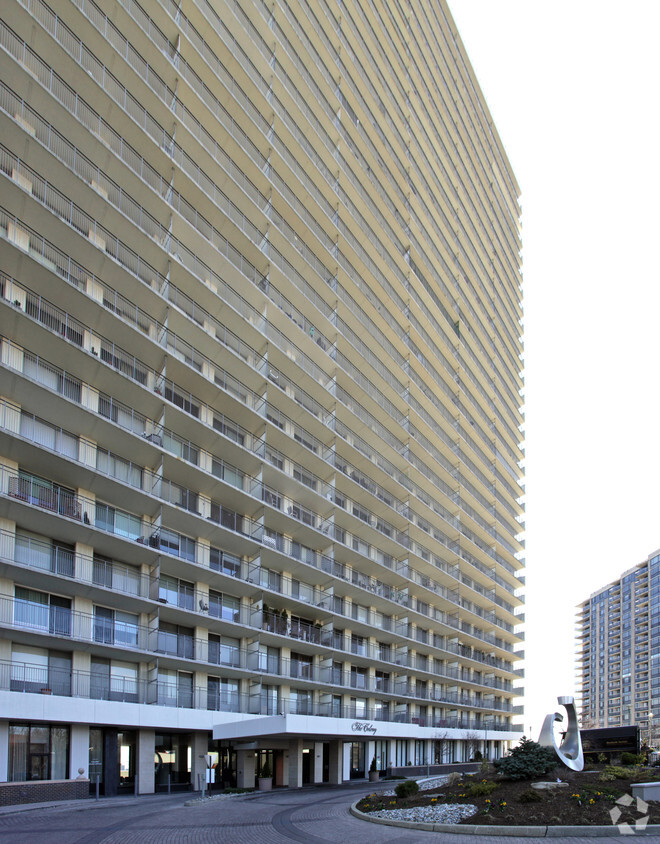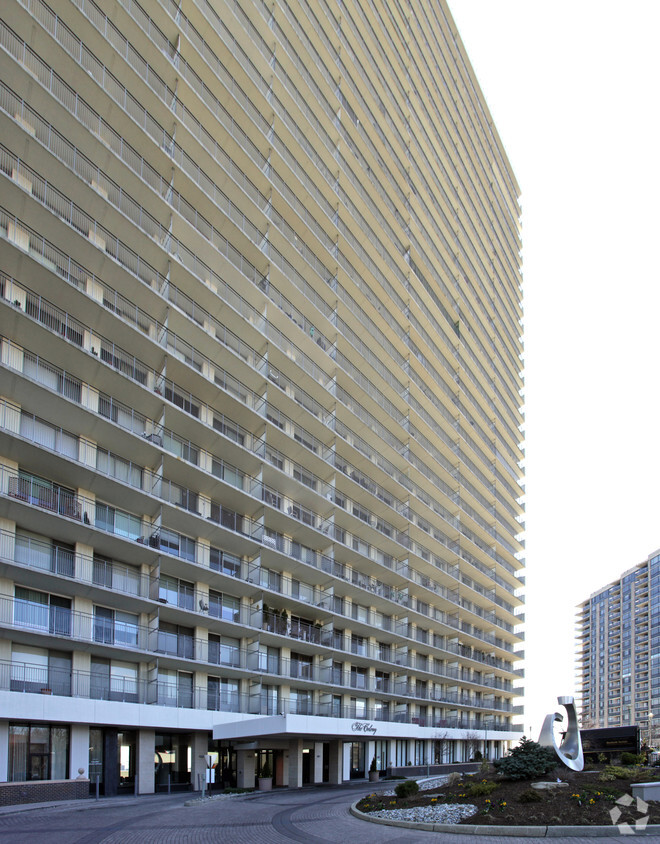
Eleven residents of the Colony, a 32-floor, full-service cooperative apartment building in Fort Lee, New Jersey, have filed a federal complaint against the building, its board members and its management company, FirstService Residential, alleging religious discrimination and violations of certain of the residents’ rights to reasonable accommodation because of handicap.
Plaintiffs and other Sabbath observant residents of the building, most of whom are elderly and/or physically handicapped, are religiously prohibited from operating the building’s elevators on the Sabbath, and have relied on building staff for assistance for more than 16 years. In May 2019, shareholders of the building voted in favor of a Sabbath elevator program, which operated in the service elevators only, and allowed the Sabbath-observant residents greater independence and dignity.
However, in a series of targeted and apparently hostile actions that have effectively confined many of the Sabbath-observant residents to their apartments on the Sabbath and Jewish holidays, the building first terminated the Sabbath elevator program in a threatening memorandum sent to all shareholders, and just weeks later—on the eve of the Jewish High Holidays in 2020—secretly instructed building staff to stop even assisting the Sabbath-observant residents with the building’s elevators on the Sabbath. This new policy targeting only the Sabbath-observant residents on the Sabbath stands in stark contrast to the full-service assistance that the staff provides throughout the week to any resident of the building who needs elevator assistance.
“They said even though the staff in the building had been helping people by pressing buttons in the elevator long before there was a Sabbath elevator, now they were banned from doing so,” explained Yehudah Buchweitz, who is leading the effort on behalf of Weil, Gotshal and Manges, LLP.
“This was a 16-year practice of everyone in the building getting help at any time they needed. You have people coming home, and there is a staff member who is getting into the elevator with them, and they still wouldn’t press the button [if it’s Shabbat],” said Weil counsel David Yolkut. “We learned later that the staff were specifically told not to help the residents.”
“Our clients include people in their 80s and 90s. One of the people who lives here has Parkinson’s. He can’t be ready at a certain time that is not of his own choosing; he needs more flexibility,” explained Yolkut, who said there was an effort by the residents to have someone come in from outside and help get everyone downstairs and upstairs, but the specific time doesn’t work for everyone.
“It’s worse in the summer because of so many activities in shul—morning services, lunch, an afternoon shiur and then afternoon and evening services. Now these residents are basically stuck in their apartments all day,” said Buchweitz.
“It’s especially disappointing that FirstService was complicit in this. The residents went to FirstService and asked for help. FirstService implements the decisions of the management and stood by the management on this. There is another building owned by the same company, The Century Tower, which does not have this issue and they have a working Sabbath elevator,” said Buchweitz.
“The shareholders voted in favor of the Sabbath elevator, but the management won’t turn it on now,” said Yolkut. “The board claimed that there was wear and tear on the doors of the elevator and that there were complaints that people were not getting their packages as quickly when the Sabbath elevator was working,” said Buchweitz.
“But that doesn’t make sense. The Sabbath elevator is a service elevator and the residents, who originally thought it would run the whole Sabbath, compromised and said they only needed it for nine hours, divided into blocks. The management cut it down to five and then zero. It ran for less than eight months [Sept. 2019 until the board’s termination in July 2020, with a two-month suspension when shuls were closed during Covid],” said Buchweitz.
“We had a mediation with them, we tried to work it out internally. I always say we want an eruv, not a lawsuit, a shul not a lawsuit. Now we want a Shabbat elevator, not a lawsuit. But unfortunately, we need to proceed.” said Buchweitz.
The complaint seeks relief under the Fair Housing Act, the New Jersey Law Against Discrimination and additional federal and New Jersey state laws. A motion for a preliminary injunction is forthcoming, in which plaintiffs will ask the court to order the Colony to immediately reinstate the Sabbath elevator program and to continue assisting the Sabbath-observant residents with the building’s elevators on the Sabbath. Weil Gotshal represents the residents on a pro bono basis, led by partner Buchweitz.
Weil litigators have secured several landmark religious-liberty settlements in similar high-profile discrimination lawsuits, also on a pro bono basis. For example, most recently Weil secured a landmark settlement under the federal religious land-use statute, RLUIPA, on behalf of Congregation Shomrei Torah of Clifton, New Jersey. The firm has also obtained settlements for pro bono clients with the Bergen County, New Jersey, towns of Mahwah, Upper Saddle River and Montvale. In 2017, each of those towns attempted unsuccessfully to halt or preclude construction of an eruv—a near-invisible demarcation that allows observant Jews to carry outside of their homes on the Sabbath and Yom Kippur. Weil’s representation of Jews facing religious discrimination in eruv cases dates back to the early 2000s in Tenafly, New Jersey, and spans two decades, including a more than five-year-long battle in the Hamptons section of New York that successfully concluded in 2016, after Weil obtained favorable decisions in state court, federal district court and federal appellate court.
The Weil team representing the Colony residents in the federal suit is led by Buchweitz and includes counsels Yolkut and Matthew R. Friedenberg; associates Josh Halpern, Yonatan Shefa, Tzvi Novak and Blake Steinberg; and local counsel Diane Sullivan.










